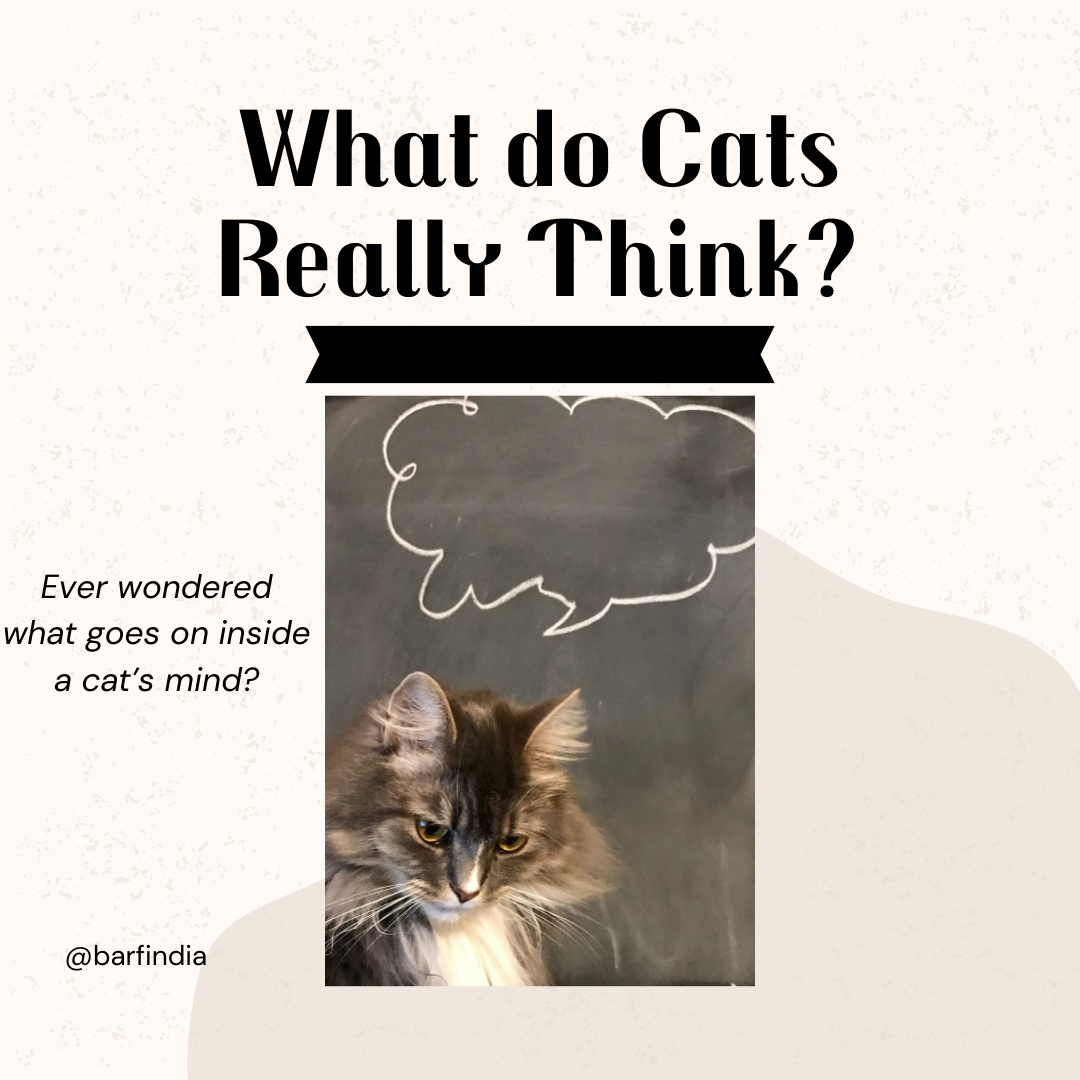
Inside a Cat's Mind: What Do they think all day?
Share
What Do Cats Think About All Day?
Cats have always intrigued us with their enigmatic behavior and unpredictable actions. These furry companions are known for their independence, yet they often display endearing signs of affection. As cat parents, we often wonder: what goes on inside the mind of a cat? Do they dream of chasing mice, or are their thoughts as mysterious as their gaze? Let’s dive into the captivating world of feline cognition to uncover what cats might be thinking about all day.
1. The Feline Perspective: A Blend of Instinct and Curiosity
Cats are instinct-driven creatures with an inherent curiosity about their environment. From the moment they wake up, their senses are on high alert. They’re constantly processing stimuli—the rustling of leaves, the scent of a distant bird, or the faintest sound of a can being opened. Unlike humans, whose thoughts may wander between work deadlines and weekend plans, a cat’s thoughts are deeply rooted in the present moment.
-
Instinctual Awareness: Cats are natural hunters. Even domesticated cats retain their predatory instincts, and much of their thought process revolves around hunting—even if it’s just a toy mouse on a string.
-
Curiosity Overload: Cats have a notorious habit of investigating every nook and cranny. Whether it’s a new box or a slight change in furniture placement, their inquisitive minds are always at work.
2. Daily Routine: Predictable Yet Stimulating
Cats thrive on routine, but that doesn’t mean their day is mundane. Their predictable schedule often includes eating, napping, grooming, and playtime—each activity engaging their thoughts in unique ways.
a. Meal Time: A Sensory Delight
Food is a significant part of a cat’s life. Mealtime triggers thoughts of satisfaction and survival instincts. The smell and taste of their favorite meal might occupy their minds long before they actually eat.
-
Cats can be finicky eaters, and their thoughts might revolve around the texture, smell, and flavor of their food.
-
Raw food diets, rich in natural ingredients, might enhance their sensory experiences, contributing to both physical and mental well-being.
b. Nap Time: Dreaming in Silence
Cats sleep for 12-16 hours a day, and during this time, their minds don’t shut off. Studies suggest that cats dream, replaying their day or imagining new adventures. It’s fascinating to think about what might fill their dreams—perhaps chasing a bird or lounging in a sunbeam.
c. Play Time: Mental and Physical Engagement
When a cat plays, they’re simulating a hunt. Their thoughts are laser-focused on their prey (toys), strategizing the perfect pounce. Playtime is not just fun but also a way to sharpen their minds and instincts.
3. The Role of Environment in Shaping Thoughts
A cat’s surroundings play a significant role in their mental landscape. A stimulating environment can encourage exploration and positivity, while a monotonous one might lead to boredom or anxiety.
-
Windows to the World: Cats love watching the world outside. Birds, squirrels, and passing cars provide endless entertainment and mental stimulation.
-
Interactive Toys: Toys that mimic prey or challenge their problem-solving skills occupy their thoughts for hours.
-
Safe Spaces: Cats often think about their “safe zones”—be it a cozy corner or a high perch. These spaces give them a sense of security and peace.
4. Social Bonds and Emotional Depth
Contrary to popular belief, cats are not entirely aloof. They form deep emotional bonds with their human companions and other animals in the household. Their thoughts often revolve around these relationships.
-
Affection and Attachment: Cats might think about their favorite person, anticipating cuddles or lap time.
-
Communication: Whether it’s a soft meow or a head bump, cats use various methods to express their thoughts and emotions.
-
Social Dynamics: In multi-cat households, cats are aware of hierarchy and dynamics, and their thoughts often reflect this.
5. How Raw Food Influences a Cat’s Thoughts
Diet plays a crucial role in shaping not just physical health but also mental well-being. A raw food diet, rich in natural nutrients, can enhance a cat’s overall vitality, potentially influencing their thought patterns.
-
Heightened Sensory Experience: Raw food engages a cat’s sense of smell and taste more than processed kibble, making mealtime a mentally enriching activity.
-
Energy Levels and Mood: Nutrient-dense meals can lead to balanced energy levels, reducing anxiety or lethargy.
-
Sharper Instincts: A natural diet aligns with their evolutionary needs, keeping their minds alert and instincts sharp.
6. Do Cats Worry? Exploring Feline Stress
While cats don’t worry in the same way humans do, they can experience stress and anxiety. Changes in routine, unfamiliar environments, or the absence of a loved one might occupy their thoughts, leading to behaviors like hiding or over-grooming.
Signs of Stress:
-
Excessive grooming
-
Avoidance or hiding
-
Vocalization or aggression
How to Alleviate Stress:
-
Provide consistent routines
-
Create safe, comforting spaces
-
Offer a balanced diet to support mental resilience
7. The Unspoken Connection Between Cats and Humans
Cats are keen observers of human behavior, often tailoring their actions based on their observations. They might think about:
-
Your Mood: Cats are sensitive to emotions and may try to comfort you during tough times.
-
Anticipation: They quickly learn routines, such as when you wake up or return home, and their thoughts often center on these moments.
Conclusion: The Marvel of a Cat’s Mind
While we may never fully understand what cats think about all day, one thing is certain: their thoughts are as complex and fascinating as they are. From instinctual drives to emotional bonds, their minds are a blend of primal instincts and unique personalities.
By providing a stimulating environment, nurturing their instincts, and offering a balanced diet—perhaps even exploring raw food options—we can contribute to their mental and physical well-being. And in return, they fill our lives with endless curiosity, affection, and joy.
